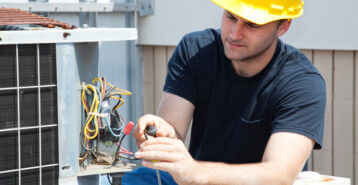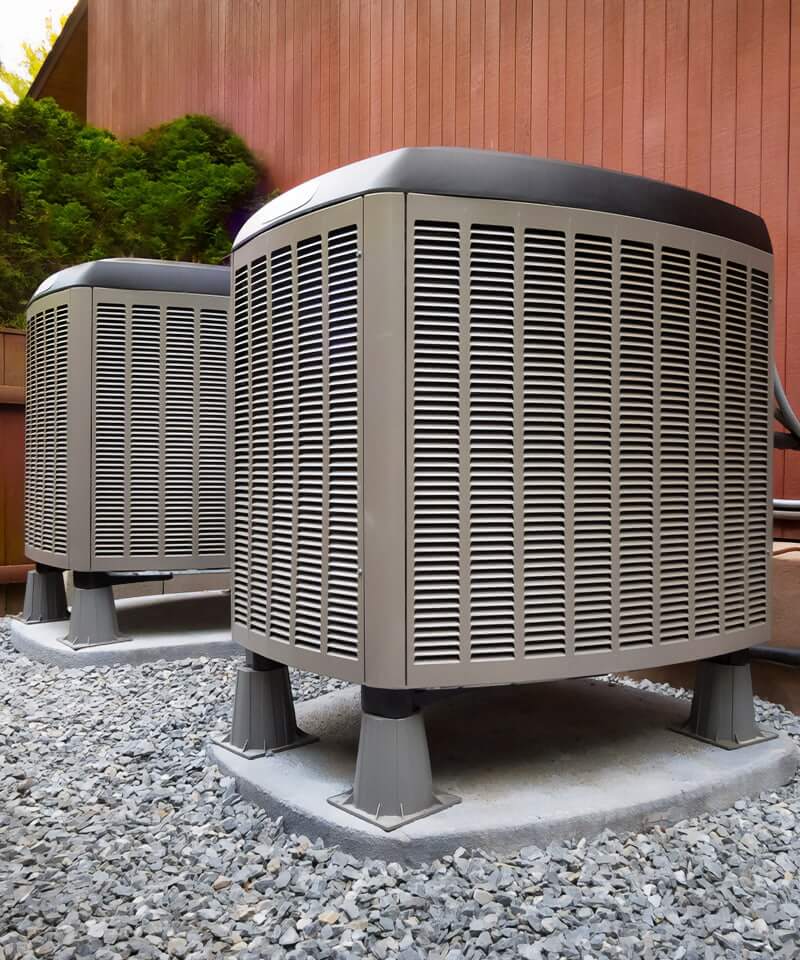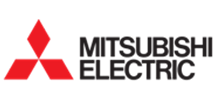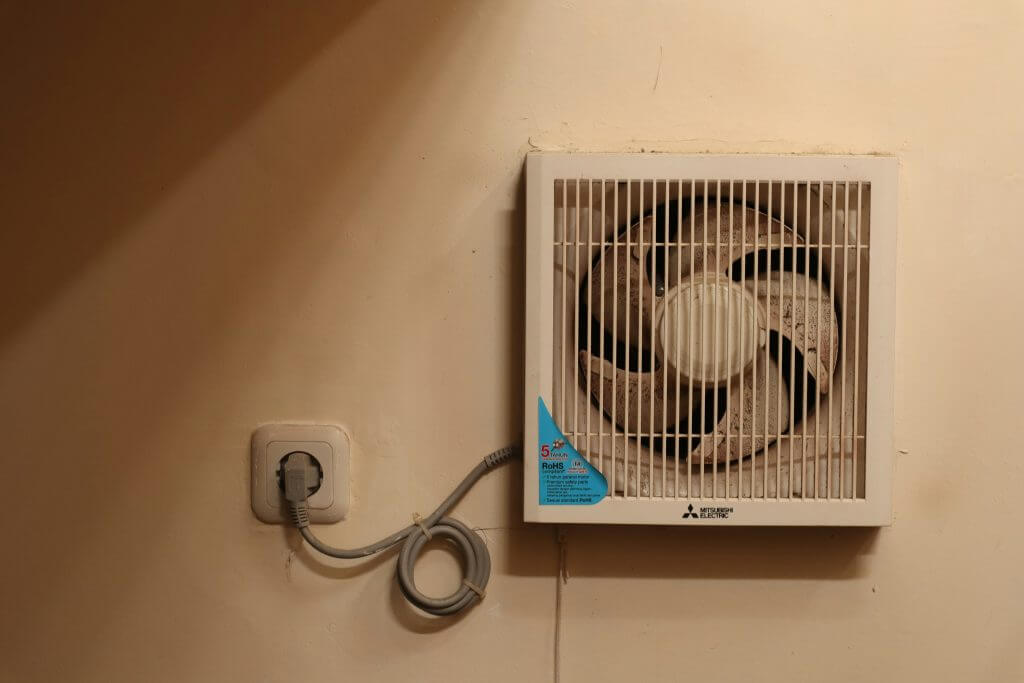

HVAC

Average Cost: $7,000 - $14,000
Here’s an in-depth look at Mitsubishi Electric heat pumps — including their key features, pricing, product options, and how they compare to other leading HVAC brands.
Our Verdict: Mitsubishi Electric is an excellent choice for homeowners who want efficient, quiet, and flexible heating and cooling. The systems shine in homes without ductwork or in colder climates, but their higher upfront cost and installation requirements might not suit everyone’s budget.
Mitsubishi Electric has been a trusted name in home comfort systems for decades. The company is known for its innovation in ductless and variable-speed technology, with products designed to provide year-round comfort while using less energy than traditional HVAC systems.
Mitsubishi Electric heat pumps are available nationwide through certified HVAC contractors. Homeowners can choose from single-zone or multi-zone systems, ductless mini-splits, and ducted models — all focused on efficient, quiet, and customizable heating and cooling.
| Best For | Top Model | Cost Installed | Standout Feature | Warranty |
|---|---|---|---|---|
| Homes seeking quiet, efficient heating and cooling | Hyper-Heating H2i® | $3,500 to $20,000+ | Maintains heat in freezing temperatures | Up to 12 years with certified installation |
At Modernize, we love that Mitsubishi Electric puts quality and comfort first. The company’s advanced inverter-driven compressors make their systems highly efficient, adjusting output automatically to match the temperature you need.
We’re also impressed by how quiet these units are — many indoor heads operate at sound levels as low as a whisper. And because there are multiple indoor unit styles, homeowners can choose between wall-mounted, floor, ceiling cassette, or ducted options to best fit their home layout.
Perhaps most importantly, Mitsubishi’s Hyper-Heating H2i® models are built for cold climates, delivering reliable warmth even when outdoor temperatures dip below zero. Add in their strong warranty protection and sleek design, and it’s easy to see why so many homeowners trust Mitsubishi Electric.
While Mitsubishi Electric heat pumps are among the most advanced on the market, they’re not the right fit for every home. Here’s a closer look at what stands out — and what to keep in mind.
Pros
Cons
Mitsubishi Electric offers several types of heat pump systems to fit different home layouts and comfort needs:

Each option can be customized to fit your home’s design, comfort preferences, and energy goals.
Mitsubishi Electric offers a range of heat pumps designed to fit different home sizes, climates, and comfort goals. From cold-climate models to sleek ductless systems, each product line focuses on energy efficiency, quiet performance, and customizable comfort. Below are some of the brand’s most popular options that homeowners frequently choose for reliability and year-round comfort.
Best for cold climates, this premium line maintains up to 100% heating capacity even in subzero temperatures.
Mitsubishi’s most popular residential line, offering a mix of wall, floor, and ceiling-mounted options for efficient, quiet comfort.
Designed for larger homes, these systems provide up to eight indoor units connected to one outdoor compressor for precise zoned control.
Select models integrate with Wi-Fi and smart thermostats, giving homeowners the ability to manage comfort remotely and improve energy savings.
A great option for homeowners transitioning from traditional HVAC setups, combining central air convenience with modern efficiency.
Homeowners consistently praise Mitsubishi Electric heat pumps for their comfort, quiet operation, and noticeable energy savings. Many users report lower utility bills and stable indoor temperatures throughout the year.
Some reviews note that installation costs can be higher than expected, but most agree that the performance and reliability make the investment worthwhile — especially when installed by a certified contractor.
“According to at least two contractors in the area – the Mitsubishi is the most efficient a reliable one on the market – I paid a little bit more but is should pay off” — FurnacePrices.ca Review
“… If it gets below 40F for more than about 2 weeks of the winter and does go below 30F multiple times in the winter, go with the Mitsubishi as that is a cold weather heat pump and is far more efficient in below freezing temperatures. …” — Reddit Review
“Mitsubishi heat pumps are generally considered to be among the best in the industry, offering advanced technology and energy efficiency that surpasses many other brands.” — HyperHeatPump Expert Review
Mitsubishi Electric heat pumps fall on the premium side of the HVAC market. The cost depends on the number of indoor units, system size, and your home’s layout — but most homeowners pay between $7,000 and $14,000 installed for a typical whole-home setup.
Single-room mini-splits can start around $3,500, while larger multi-zone or Hyper-Heating models can climb above $20,000 for big homes or complex installations.
While the price tag is higher than many conventional systems, homeowners often see lower monthly energy bills, longer system lifespans, and potential eligibility for rebates and tax credits that help offset upfront costs.
| System Type | Estimated Installed Cost Range | Average Paid by Homeowners |
|---|---|---|
| Single-Zone Ductless (1 room) | $3,500 to $7,500 | $5,000 |
| Multi-Zone (2 to 5 rooms) | $7,000 to $16,000 | $10,000 |
| Whole-Home / Large Multi-Zone | $10,000 to $20,000+ | $13,500 |
| Cold-Climate Hyper-Heating Models | $12,000 to $22,000+ | $15,000 |
Prices include labor and materials. Actual costs vary by home size, system design, and regional labor rates.
| System Size | Home Size Coverage | Estimated Cost Range |
|---|---|---|
| 9,000 BTU | Up to 400 sq. ft. | $3,500 to $5,500 |
| 12,000 BTU | 400 to 600 sq. ft. | $4,000 to $6,000 |
| 18,000 BTU | 600 to 1,000 sq. ft. | $5,000 to $8,000 |
| 24,000 BTU | 1,000 to 1,500 sq. ft. | $6,000 to $9,000 |
| 36,000+ BTU (Multi-Zone) | 1,500 to 2,500+ sq. ft. | $10,000 to $20,000+ |
| Region | Estimated Installed Range | Notes |
|---|---|---|
| Northeast | $9,000 to $18,000 | Higher labor rates; popular Hyper-Heating models for cold climates |
| Midwest | $8,000 to $16,000 | Moderate heating demand and seasonal variations |
| South | $6,000 to $13,000 | Less heating load, often smaller systems |
| West | $7,000 to $15,000 | Energy-efficient upgrades are common; moderate climate zones |
| Home Type & Location | System Installed | Estimated Cost |
|---|---|---|
| 1,200 sq. ft. home in Atlanta, GA | 2-zone ductless system | ~$8,500 installed |
| 2,000 sq. ft. home in Chicago, IL | 3-zone Hyper-Heating system | ~$11,000 installed |
| 2,400 sq. ft. home in Denver, CO | 4-zone whole-home ductless setup | ~$13,500 installed |
| 1,600 sq. ft. home in Portland, OR | Ducted Mitsubishi system | ~$10,000 installed |
These examples represent typical installations by certified contractors, including both indoor and outdoor units. Final pricing may differ depending on the home’s insulation, line set distance, and customization.
Several factors can shift your total price up or down:
Mitsubishi Electric systems often qualify for federal tax credits and local utility rebates for high-efficiency equipment. Many certified HVAC contractors also offer financing options that allow homeowners to spread payments over time.
Look for:
When comparing Mitsubishi Electric to other leading heat pump brands, it’s clear the company sits at the premium end of the market — but it delivers technology and performance that justify the price for many homeowners.
Read Our Carrier Heat Pump Review
Read Our Trane Heat Pump Review
Read Our Lennox Heat Pump Review
If you’re considering a Mitsubishi Electric heat pump, you probably have questions about performance, cost, and long-term value. Below, we’ve answered some of the most common questions homeowners ask to help you decide if Mitsubishi is the right fit for your home’s heating and cooling needs.
Yes. Mitsubishi’s Hyper-Heating models are specifically designed to deliver full heating output in subzero temperatures, making them ideal for regions with cold winters.
No. Many Mitsubishi systems are ductless, which means they can be installed in homes without existing ducts — perfect for older homes or new additions.
With proper installation and maintenance, Mitsubishi Electric heat pumps can last 15 to 20 years or more.
Routine maintenance is simple — regular filter cleaning and annual professional service keep systems running efficiently. Replacement parts and service may cost more than average, but reliability helps minimize major repairs.
Yes. These systems use inverter-driven compressors that adjust to your comfort needs, often resulting in noticeable energy savings compared to older electric or fuel-based systems.

Mitsubishi Electric is one of the best heat pump brands available for homeowners who value comfort, flexibility, and efficiency. The systems perform exceptionally well in both hot and cold climates, and their quiet operation makes them ideal for year-round comfort.
While they require a higher initial investment and a professional installer, the long-term savings and performance make them a smart upgrade for many homes.
If you’re planning to electrify your heating and cooling system or improve comfort in specific rooms, Mitsubishi Electric is a reliable and future-forward choice.
Ready to compare more options? Visit our Modernize Review Hub to explore other top HVAC brands, installation tips, and cost guides to help you choose the best system for your home.
Read real homeowner reviews, explore qualifications, and view promotions. Modernize makes it easy to browse professionals and find one that will be perfect for your project.